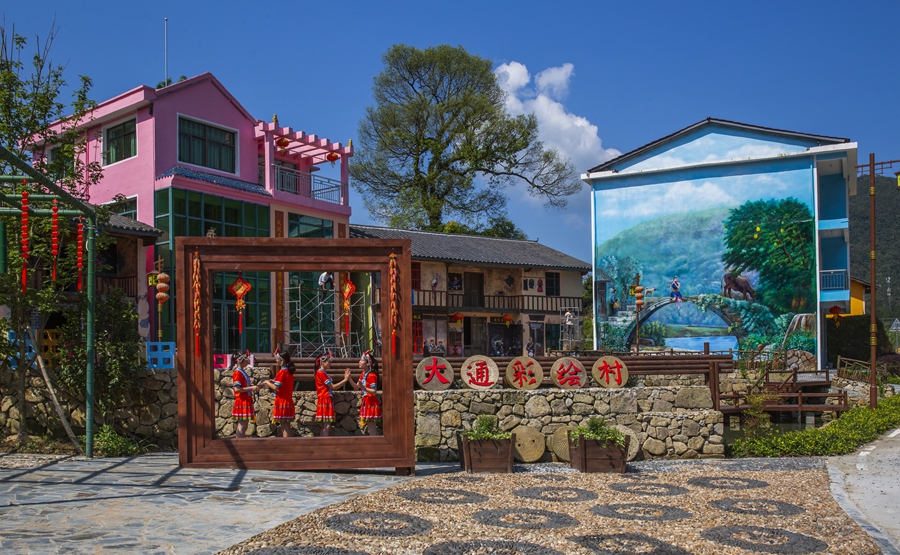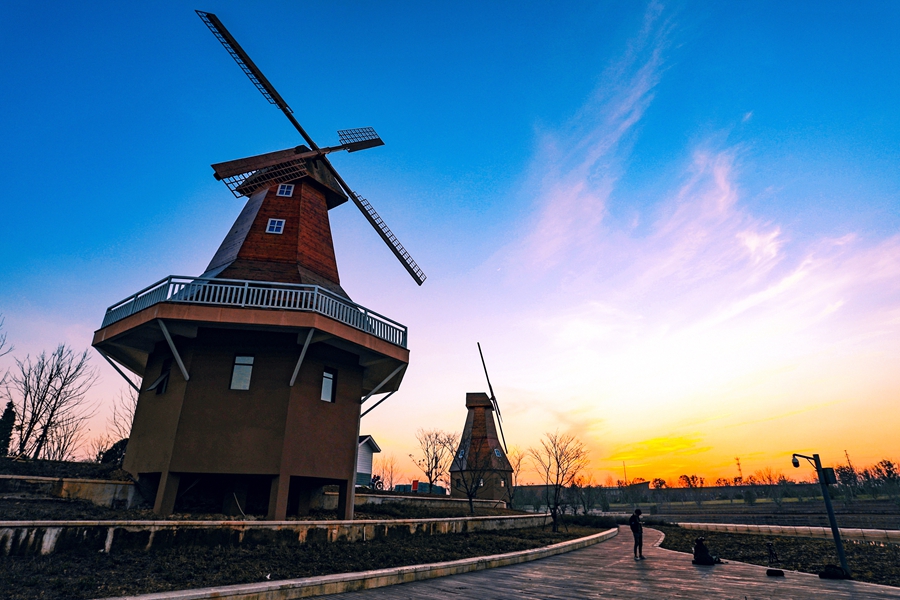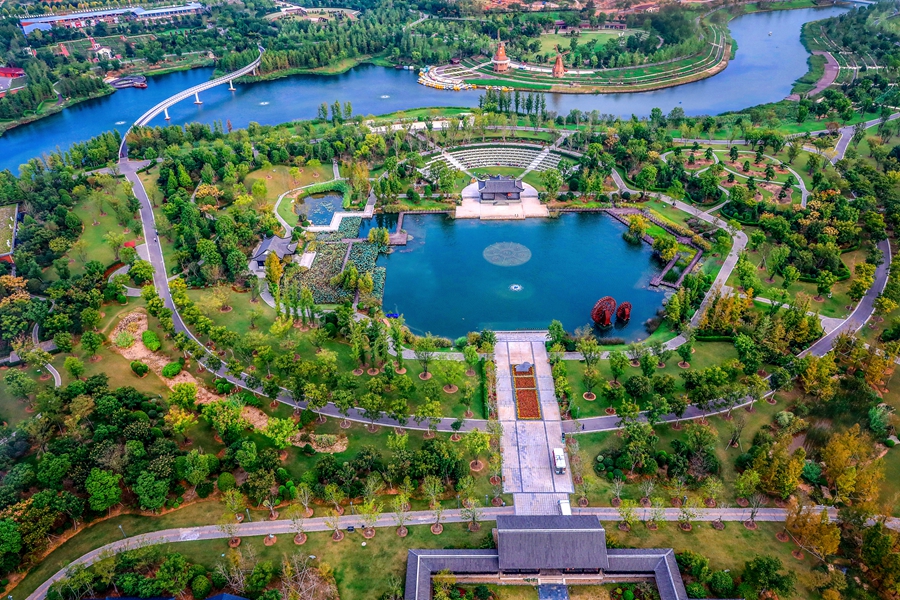In recent years, China has been making more efforts for ecological environment and high-quality growth, a departure from the old extensive growth model. Since 2017, China has rolled out implementation plans for national ecological civilization pilot zones in several provinces.
Local practices in China have unveiled the secret of turning the invaluable assets of "lucid water and lush mountains" into money while protecting the environment.
NANCHANG, Nov. 2 (Xinhua) -- It's widely believed that economic growth inevitably comes at the cost of the environment, yet local practices in China have unveiled the secret of turning the invaluable assets of "lucid water and lush mountains" into money while protecting the environment.
In October this year, over 260 villagers from Jinzhu She Ethnic Township in the city of Fuzhou, east China's Jiangxi Province, shared a dividend of 280,000 yuan (39,800 U.S. dollars) from a tourism development company.

Photo taken on June. 4, 2019 shows a wall painting at Datong Village of Jinzhu She Ethnic Group Township in Le'an County, east China's Jiangxi Province. (Zhang Zequn/Handout via Xinhua)
"I never expected that I could make any money from the natural scenery right in front of my house," said Lan Zhiping, one of the villagers. The 37-year old received 1,100 yuan as a dividend at the end of last year.
It was a far different situation two years ago. The primary earner of a family of five only made around 5,000 yuan a year selling wild vegetables and doing odd jobs.
In 2017, a tourism development company doubled down on the outstanding local ecological environment and invited local land keepers to devote their land-use rights as a production element to tourism development. In return, local residents enjoy an annual dividend payout.
"Our village has taken on a new look. I not only receive a dividend from the tour company but also build wealth through tourism," said Lan, who now can make over 25,000 yuan a year by running a homestay at the tourist site.
Lan's delight is felt across many parts of China. For many regions, making money no longer means polluting lands or cutting trees as a new development concept is helping transform green assets into revenue for locals.
Since 2017, China has rolled out implementation plans for national ecological civilization pilot zones in several provinces, including Jiangxi, Fujian and Guizhou. These plans highlight the realization of ecological products' value.
Fuzhou, designated as a pilot area for realizing the value of ecological products in Jiangxi, has experienced plenty of meaningful trials and errors during its pursuit of green development.

Photo taken on Dec. 21, 2017 shows the scenery of Sanweng art town in Fuzhou, east China's Jiangxi Province. (Li Yong/Handout via Xinhua)
One of its administered regions, Zixi county, stands out as it has successfully gone through a challenging period of transformation.
The county was once notorious for its highly-polluted pesticide plants, mining companies and wood processing enterprises. There were more than 100 mining companies in the county at its peak, damaging the natural landscape and draining natural resources, said Wu Jianhua, former Party chief of the county.
"We are still paying the price for that today," Wu said.
Facing the dilemma between maintaining economic growth at the cost of the ecological environment and sacrificing short-term growth for environmental protection, Wu chose the latter.
While shutting down all mining and wood processing companies, his team gained support for developing ecological tourism to turn local green assets into money-earning machines.
Last year, Zixi county saw an over 5-percent growth in its fiscal revenue, and tourism has contributed to more than 60 percent of its gross domestic product growth last year, according to Wu.
However, Zixi's trials go far beyond tourism. It is nurturing new industries based on local natural resources in a bid to upgrade its real economy.
The county, home to around 35,000 hectares of moso bamboo, has established a bamboo industrial park, vowing to produce bamboo fabric materials using advanced technology.
Other counties in Fuzhou have also made stunning achievements in earning revenue through carbon trading, adjusting industrial structures and deploying new technologies related to the Internet of Things.

Photo taken on Sept. 27, 2018 shows the panoramic view of Sanweng art town in Fuzhou, east China's Jiangxi Province. (Li Yong/Handout via Xinhua)
In recent years, China has been making more efforts to preserve the ecological environment while maintaining high-quality growth, a departure from the old extensive growth model.
Several institutional reforms, including the construction of the national park system and promotion of the river chief system, have helped boost the country's building of an ecological civilization.
(Reporting by Zhang Zhaoqing, Shen Yang, Fan Fan, Guo Qiang, Li Baojie; Video reporters: Fan Fan, Guo Qiang; Video editor: Li Ziwei)



